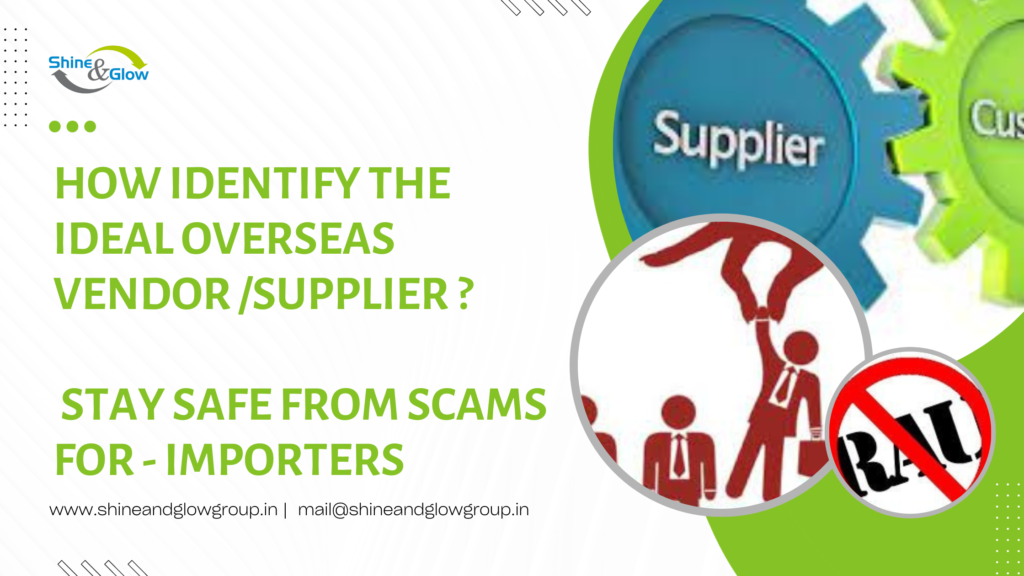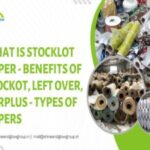Stay Safe from Scams for – Importers

In the global marketplace, importing goods from overseas suppliers can be a lucrative endeavor. However, it’s essential for importers to exercise caution to ensure they work with reputable vendors and avoid falling victim to scams. Here, we’ll outline key steps and precautions to help you spot the ideal overseas vendor and protect your business interests.
1. Check Digital Footprints:
- Scrutinize the supplier’s digital presence, including social media profiles. Look for the age and authenticity of posts, especially on platforms like Facebook, Instagram, and LinkedIn.
2. Examine the Website:
- Verify the existence and quality of the supplier’s website. Legitimate businesses often maintain professional and updated websites.
3. Investigate the Owner:
- Research the owner’s name online. Ensure the information is consistent with the documents provided by the supplier.
4. Assess Industry Involvement:
- Check if the supplier is associated with any industry organizations, institutions, or associations, which can signal credibility.
5. Inquire About Exhibitions:
- Ask whether the supplier has attended any industry exhibitions as exhibitors. This participation can indicate a commitment to the business.
6. Insist on Video Calls:
- For single suppliers or traders, request a video call to view the goods and their condition firsthand.
7. Beware of Immediate Confirmations:
- Be cautious if the supplier immediately confirms your order at a price significantly lower than the market rate. Such offers can be red flags.
8. Verify Banking Information:
- Double-check the supplier’s IBAN number and SWIFT code to ensure that the bank is near the supplier’s listed address.
9. Discuss Visiting Before Payment:
- Ask if you can visit the supplier’s location before making payments, as this can provide valuable insights into their legitimacy.
10. Avoid Greediness:
- Don’t show excessive greed when negotiating. Being overly eager to secure a deal can make you more vulnerable to scams.
11. Collect Business Information:
- Obtain a business card and don’t hesitate to request a company registration certificate to verify the supplier’s legitimacy.
12. Be Wary of Extremely Low Prices:
- If the offered price for goods is significantly lower than the market rate, exercise caution, as it might be a scam.
13. Request References:
- Ask the supplier for references from previous customers to validate their track record.
14. Inquire About Goods in Detail:
- Seek comprehensive information about the goods, even if you have a good understanding of the product.
15. Utilize Import and Export Data Tools:
- Leverage various tools to cross-check import and export data to ensure consistency and authenticity.
16. Check for Certifications:
- Ensure the supplier holds industry-specific certifications or adheres to quality assurance standards.
17. Contact Previous Customers:
- Reach out to references provided by the supplier to confirm their reliability.
18. Visit Their Location:
- Whenever possible, plan a physical visit to the supplier’s location to assess their operations.
19. Verify Licensing and Registration:
- Ensure the supplier is registered and licensed in their country of operation.
20. Check Online Reviews:
- Look for online reviews and feedback from other customers to gauge the supplier’s reputation.
21. Assess Communication Skills:
- Professional and responsive communication is a positive sign, while poor communication may raise concerns.
22. Use Secure Payment Methods:
- Opt for secure payment methods, such as letters of credit or escrow services, to mitigate fraud risks.
23. Understand Incoterms:
- Familiarize yourself with International Commercial Terms (Incoterms) to clarify responsibilities and risks.
24. Look for Red Flags:
- Be vigilant for signs of pressure to make hasty decisions, unusual payment requests, or reluctance to provide essential documentation.
25. Consult a Trade Expert:
- Seek guidance from a trade expert if you are new to international trade.
26. Verify Product Samples:
- Request product samples to assess quality and authenticity before placing substantial orders.
27. Understand Local Laws and Regulations:
- Comply with the import regulations and customs requirements of the country you’re importing to.
28. Protect Your Intellectual Property:
- Take steps to safeguard your intellectual property rights, especially if you’re dealing with proprietary products or designs.
29. Consider Language Barriers:
- Ensure all agreements are clear and written in a language both parties understand.
30. Keep Records:
- Maintain detailed records of all interactions and transactions with the supplier for reference in case of disputes or discrepancies.
About Shine and Glow Group:
Shine and Glow Group is a seasoned player in the import industry with a track record of successfully sourcing goods from overseas suppliers. Their extensive experience serves as a testament to the importance of due diligence in international trade.
In conclusion, importing from overseas suppliers can be a rewarding venture, but it requires diligence and thorough vetting to avoid scams and ensure a successful partnership. By following these guidelines and conducting due diligence, you can confidently choose the ideal overseas vendor and minimize risks in your import business. Stay informed, stay cautious, and your importing journey will be more secure and profitable.
visit us /ask any questions mail@shineandglowgroup.in / www.shineandglowgroup.in



